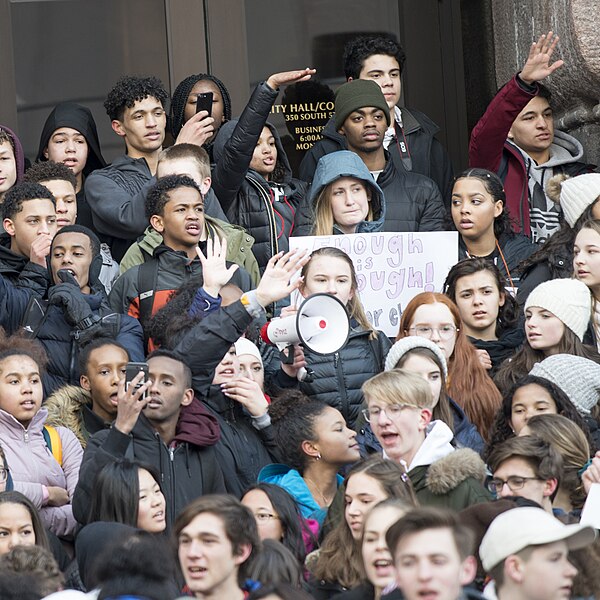
by Kathie MM
Way to go, guys! We have the best set of alternatives we’ve seen since the Occupy Movement was pounced on by the entrenched elite that feared democracy, feared truth, feared loss of control.
Today’s alternatives seem clear:
Are you going to side with the military-industrial complex against the young reformers or support what may be the best hope we’ve ever had for enacting gun reform?
Are you going to heed the lies, the distortions, the put-downs from the NRA and its toadies, or are you going to say No to the spread of deadly weapons of mass destruction that kill innocents daily?
Are you going to be morally disengaged or engaged?
Will you close your ears or listen to the new young leaders?
Leaders such as:
Emma Gonzalez, who is organizing voter registration drives, has raised millions for a march on Washington (March 24), and whose twitter account @Emma4Change has over 760k followers! Take that, NRA!
Whitney Bowen and Eleanor Nuechterlein, 16-year-old high school students from the DC area, who started Teens For Gun Reform (TGR) within two days of the Parkland shooting.
Cameron Kasky, cofounder of the student-led gun control advocacy group Never Again MSD (#NeverAgain).
Search on their names, read their stories, hear their voices, and join their cause, our cause. A good place to start is here and here and here.

